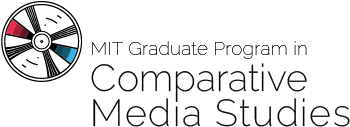Why is it the case that Web 2.0 ideals have been reestablished and taken over by centralized apps? What is the root cause behind privacy breaches, data ownership problems, and surveillance capitalism? It is the lack of data interoperability on today’s Internet that has led to the deprivation of netizen participation and representation in the data economy. What methodology could we use to analyze these problems? What new paradigms of online interactions and technological developments are changing the status quo and moving the Internet toward a decentralized web? This thesis scrutinizes the evolution of Internet technologies, the changing paradigms of netizens’ online interactions, and the socioeconomic structures of Internet platforms in the larger context of the proposed shift from a centralized web to a decentralized one. I propose a three capital model as the fundamental framework to help analyze problems faced by today’s Internet. I illustrate the emerging social video and social e-commerce platforms’ production paradigms that have won them the comparative advantages against big platforms. I argue that data interoperability is the key to change the siloed app ecosystem toward a more decentralized direction. The third chapter examines the different attempts made by the industry to increase interoperability at different levels–software level, platform level, and infrastructure level. If Web 1.0 granted netizens the right to view online content, and Web 2.0 has given netizens the right to publish in a participatory manner, I envision that Web 3.0 will enable netizens to access personal storage and computation. I propose a breakthrough test and show how projects like SoLid can help to realize data interoperability, and how new technological and marketing infrastructures can recuperate netizens’ right for data ownership and representation in the data economy and online content market.
About Han Su
Han Su (苏汉) is an interactive media artist, full stack developer, and media researcher focusing on HCI, politics of code, and technology at large.
Prior to CMS, Han earned his bachelor’s degree with double-major in Computer Science and Interactive Media Arts at New York University Shanghai―the third degree-granting campus in the NYU global network, during which he has studied in New York, Abu Dhabi, and Buenos Aires―where he picked up some basic Spanish and Arabic.
Han is born and raised in China and has received education in both Chinese and western countries. Han loves reading about politics, economics, and history. At MIT, he works at the Global Media Technology & Cultures Lab. Han is enthusiastic about emerging technologies and interested in tech companies in emerging markets.
Apart from academia, Han is keen on sports and music―he has received endorsements for his ping-pong and basketball skills, while bad reviews of his singing.
Thesis: Theory and Practice Towards a Decentralized Internet



